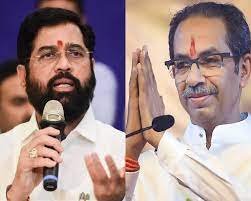The Court once again examined the selective methodology used by the Central government in the assignment of judges. On Monday, the Supreme Court expressed apprehensions about the Central government’s omission to appoint two Sikh lawyers as judges of the High Court.
A Bench comprising Justices Sanjay Kishan Kaul and Sudhanshu Dhulia remarked, referencing the apparent reluctance of the Centre to confirm the appointments of advocates Harmeet Singh Grewal and Deepinder Singh Nalwa to the Punjab and Haryana High Court:
“It appears that two of the nominees who were not approved are of the Sikh faith. How does such a situation even arise? Past complications should not entangle with the ongoing matters that are pending.”
On October 17, the Supreme Court Collegium had recommended Grewal and Nalwa, along with three other lawyers, for appointments. Yet, on November 2, the Centre conveyed that only three out of the five lawyers listed had been appointed. Today, the apex court once again addressed the government’s selective approach regarding the transfer of judges.
“This does not cast a positive impression, counsel. Transfers can’t be made selectively in such a manner. What kind of message does this send? One pending from Allahabad, one from Delhi, and four from Gujarat have not been transferred at all,” the Court expressed to R Venkataramani, the Attorney General (AG).
The AG replied, indicating that elections had caused a slight delay and that progress is being made on the names that have been reaffirmed. Nevertheless, the Court observed that not even half of the names have been cleared.
“We have taken your inputs seriously. Your delay has impacted their seniority,” the Court continued.
The Court’s order pointed out that out of eleven names recommended for transfer, five have been effected, with six still awaiting action. Additionally, eight out of the recently reaffirmed names for appointments are yet to be appointed, and the government has not responded concerning five of them.
“While some are appointed, others become more senior,” the Court remarked, “We have previously conveyed that it becomes difficult to persuade individuals to accept a position on the bench at that point.”
The hearing was adjourned to December 5, taking into account the AG’s assurance that the Court would not be left in dissatisfaction.
The Advocates Association Bengaluru had approached the Court concerning the protracted process of judicial appointments. The Association claimed that the Central government’s inaction on the Collegium’s recommended names for appointments constituted a blatant disregard for the apex court’s judgment in the Second Judges case.
Earlier in November, the Supreme Court had clarified that the Central government cannot hinder the appointment of judges on the premise that the names it had sanctioned were not ratified by the Collegium. According to the Bench, if a name is rejected by the Collegium for judgeship, that should be the end of the matter.
Furthermore, the Court had decried the Central government’s selective approach to judicial appointments, which it said affected the seniority of those recommended. The apex court had sought a response from the Union Law Secretary on this issue in the previous November.
Previously, the Supreme Court had voiced its dissatisfaction in a hearing about the government’s selective processing of names, which jeopardizes the potential seniority of capable lawyers nominated by the Collegium for positions as High Court judges, leading to some candidates withdrawing from the nomination process.


